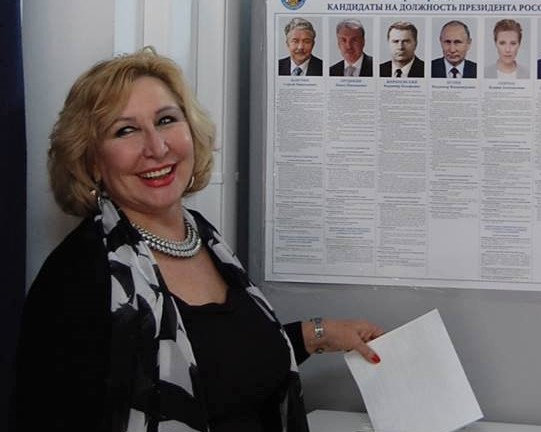Not so long ago Russkiy Mir Foundation has published news about the grave of the first wave emigrant Georgy Gorchakov in Tunisia. The grave is situated at the local Gammarth cemetery located near Tunis. Our compatriot Natalia Kupcha lives for 40 years in this country, was a good friend of Georgy Nikolaevich. Here's what she told us about him:
He was my neighbor. Since I was a touristic guide, I was talking about Russian diaspora in Tunisia, and always conveyed good sentiments to him.
It's been a while, about 35 years ago.
Gorchakov died by natural causes, of old age. He was buried with all honors at the Gammarth cemetery located in the outskirts of Tunis. He used to live near Carthage, La Marsa city.
The grave is listed in the municipal archives. It's not difficult to come to the cemetery and find the Gorchakov's grave. Especially that the Beys family is looking after it.
Georgy Gorchakov lived for many years in the family of Tunisian Beys whom I taught at school (The Beys of Tunis were the monarchs of Tunisia under the suzerainty of the Ottoman Empire from 1704 to 1956).
At first he served as a teacher for general subjects and for music, afterwards he continued to live for a long time with that family, and was treated very well. I was acquainted with that respectable family.
For the first time I met Georgy on the street, next to his house. At the time he was already not feeling well, with a big hump growing on his back. He was moving with difficulties while walking his old dog. He was talking in Russian with his pet, which immediately attracted my attention.
Georgy has invited me to his dusty room describing it as his crypt. He said that he's old, that he has seen many things in life, claiming that this kind of setting inspires him to make music. At that time Georgy was composing a Requiem...
Being his neighbor I communicated with him on a regular basis. Georgy missed Russian language very much. Sometimes I cooked Russian dishes for him.
Later I told about monsieur Gorchakov to Mr. Zheltkov, back then the Chairperson of Russian Center of Science and Culture. It was decided to invite the composer and organise a concert.
I personally participated in that wonderful event. There were many listeners, everyone applauded, there was a standing ovation. I saw tears streaming down his cheeks...
Living many years in Tunisia, Georgy was scared to meet Soviet officials. He thought he might have the same tragic fate as Sergey Prokofiev's wife. After Lina Prokofiev (the actual name was Carolina Codina, she was a Spanish singer) moved to USSR, she spent 8 years in Stalin's Gulag.
Georgy told me many stories about his private life and an interaction with composer, pianist, conductor Sergey Prokofiev in Paris. Georgy worked for him as a musical assistant .
Being a child, he played his etudes to another great composer - Alexander Skryabin who was a close friend of Gorchakov's family while living in Russia.
Through Tunisian embassy all Gorchakov's musical archive was handed over to the USSR. It was his own free will.
Not long ago Rossotrudnichestvo website published an information that a volunteers' group has discovered “neglected” composer's grave at the Gammarth cemetery. Allegedly they have made a picture of the grave, and were going to take care of it from now on. I have to claim that the Gorchakov's grave is located at this municipal Tunisian cemetery is in very good condition, and it's being taken care of. The grave was never been forgotten indeed, and its history is well known to many our compatriots and Tunisians. The memory of Russian composer Gorchakov is well-preserved.
For these kind deeds we need to join efforts, knowledge, and enthusiasm.
Natalya Kupcha
The Director of Regional Consul of Russian compatriots in African and Middle Eastern countries, the Honorary President of the National Association of Russian Compatriots in Tunisia









